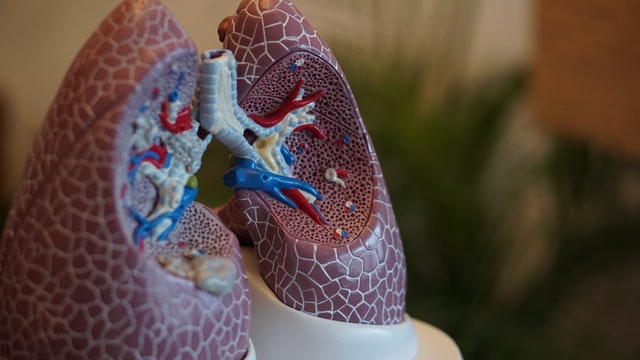The ATI TEAS® was designed to assess applicants’ academic preparation for health science programs such as nursing. TEAS is an abbreviation for the Test of Essential Academic Skills. The test maker’s name is ATI, which stands for Assessment Technologies Institute.
TEAS results are accepted by more institutions than any other health science admissions test, however, some programs require candidates to submit scores from other tests. As a result, before preparing for and taking the TEAS, be sure the colleges that you’re interested in will accept a TEAS score. Move on to know more about what is on the TEAS test. Besides, you can visit our TEAS Practice Test 2024 to study for the test.
What Is The TEAS Exam?
The TEAS exam is taken by nursing students when they apply to nursing schools in the United States. It evaluates a nursing student’s academic potential in nursing school. Universities employ this test because studies suggest that people who do well also do well academically in higher education.
The TEAS is frequently part of the whole application process that nursing students must go through in order to be admitted to nursing school, which includes transcripts, an application, an essay, letters of recommendation, and fees. The TEAS exam is identical to the Health Education Systems Incorporated Admissions (HESI A2) exam, which is used as part of a student’s admission to various universities.
What Is On The TEAS Test?
The TEAS questions measure knowledge and abilities selected by health science institutions as relevant to determining your preparedness to enter a college program of study. The assessed topic is commonly taught in grades 7–12. The TEAS test sections evaluate information in four topic areas below:
|
CONTENT AREA |
NUMBER OF QUESTIONS (NUMBER OF SCORED QUESTIONS) |
TIME LIMIT |
SPECIFIC CONTENT COVERED |
|
Reading |
53 (47) |
64 Minutes |
Key ideas and details Craft and structure Integration of knowledge & ideas Pre-Test questions
|
|
Mathematics |
36 (32) |
54 Minutes |
Numbers and algebra Measurement and data Pre-Test questions
|
|
Break |
– |
10 Minutes |
|
|
Science |
53 (47) |
63 Minutes |
Human anatomy & physiology Life and physical sciences Scientific reasoning Pre-Test questions
|
|
English and Language Usage |
28 (24) |
28 Minutes |
Conventions of standard English Knowledge of language Vocabulary acquisition Pre-Test questions
|
|
Total |
170 (150) |
219 Minutes |
The 20 unscored TEAS test questions are presented to assess the validity of the questions. You won’t know if a question is scored or not, so try your best to answer all of them correctly.
On the TEAS, there is no penalty for incorrect responses, so make careful to complete the questionnaires. Even if you have to guess, you might be able to answer the question correctly. If you can remove one or two response alternatives as plainly erroneous, your chances of guessing correctly rise. So, you must pay more attention to those ATI TEAS test questions.
TEAS Reading Test
The purpose of the reading subtest is to measure a candidate’s reading comprehension. Typically, the test questions comprise of a multi-paragraph narrative and related questions. In addition, students will be expected to read charts, graphs, maps, labels, measuring instruments, and directions. The following aims might be put to the test:
- Determine the author’s intention
- Determine the topics, primary concepts, and supporting information.
- Distinguish between opinion and fact.
- Make judgments and generalizations
- Recognize the structure and textual characteristics
- Vocabulary Definition
- Comply with a set of instructions.
- Interpret information graphically
- Determine where information may be located using a table of contents index

TEAS Mathematics Test
The math subtest is designed to examine a candidate’s understanding of algebra, data interpretation, numbers and operations, and measurement. The TEAS test will evaluate the following objectives:
- Convert decimals, fractions, and percentages.
- Fractions and mixed numbers must be added and divided.
- Work out arithmetic questions using ratios, proportions, and rates of change.
- Convert numbers between Roman and Arabic.
- Solve equations using a single unknown variable.
- Solve absolute value equations and inequalities.
- Data from tables, graphs, and charts must be organized and interpreted.
- Measurements must be converted.
- Calculate metric quantities
- Object size, weight, and volume should all be measured.
Read more in detail: What kind of math is on the TEAS test?
TEAS Science Test
The science subtest evaluates a student’s understanding of scientific reasoning, life science, the human body, and physical and earth science. This part is frequently regarded as one of the most difficult by candidates. Candidates must be able to prove the following abilities:
- Explain the functioning of the circulatory, neurological, digestive, respiratory, and immunological systems.
- Explain basic anatomy and physiological principles.
- Learn about natural selection and adaptability.
- Analyze the biological categorization system
- Understand the components of a cell and its activities.
- Recognize DNA and RNA
- Compare and contrast respiration with photosynthesis.
- Compare and contrast meiosis and mitosis.
- Make use of taxonomy.
- Use Mendel’s genetic rules and the Punnett square.
- Make use of the periodic chart of elements.
- Describe the characteristics of atoms.
- Determine the physical characteristics of matter.
- Determine the diffusion rates and molarity.
- pH scale results must be interpreted.
- Determine the magnitude of force and motion Describe the components of an experiment Interpret scientific reasoning
TEAS English And Language Usage
The grammar, sentence structure, punctuation, spelling, and contextual words subtest assesses a candidate’s understanding of grammar, sentence structure, punctuation, spelling, and contextual terms. The TEAS English exam will evaluate a student’s ability to accomplish the following tasks:
- Subject-verb agreement norms must be followed.
- Determine the meaning of words in a phrase based on their context Identify and utilize various parts of speech such as possessives, pronouns, verbs, adverbs, and adjectives
- Correctly use verb tenses
- Determine the right spelling of the following words: irregular plurals, compound or hyphenated words, and often misspelled terms.
- Determine the proper capitalization of names, titles, and addresses.
- Determine the difference between simple, compound, and complicated sentences.
- Determine the proper sentence punctuation.
- Change your voice from passive to active.
If you want to know how to study for each section, read more about Useful TEAS Test Tips for 4 Subsets
What Is The Difference Between The ATI TEAS And The TEAS V?
The TEAS V will be retired on August 31, 2016. Prospective health science students will take the ATI TEAS after this date. The following are the primary differences between the previous and current editions of the test:
- In the Mathematics area, you may now use a calculator. If you take the test on a computer, the onscreen test interface includes a four-function calculator. If you are taking the test on paper, the proctor will provide you with a four-function calculator. You are not permitted to bring your own calculator to the exam.
- The test’s four topic sections have not been altered. The precise abilities highlighted in each, however, have been realigned in response to instructor comments on the skills that entry-level health science students should possess.
- All prior test results were presented as a percentage. Your composite score is reported as a number on the ATI TEAS, and your content area scores are reported as percentages.
Registration For The ATI TEAS
Make your registration as soon as possible because the capacity for each testing session is limited. To register for the TEAS, go to atitesting.com, the test maker’s website. To register for the test, you must first make an account and be signed in to the site. Select Register for… TEAS from the Online Store. You will be asked where you would want to take the exam. Then you’ll be prompted to enter your billing information. The cost of the exam varies depending on where you take it, but it is usually between $50 and $100.
You may also register at a PSI (previously Pearson Vue) test center to take the exam. At atitesting.com, you will pay for the exam and obtain a registration number. Then, to arrange the exam, go to psiexams.com or call 1-800-733-9267. For more information on this option, go visit ATI’s website. The cost of taking the exam at a PSI test center is $115.
Another option is to contact the institution to which you want to apply and get a list of TEAS testing venues. The TEAS is administered on campus by many nursing and allied health schools, and registration for the test is sometimes accessible through the institution.
If you register for the exam through ATI, your registration is complete. To modify your test date, you must re-register and pay the testing price. If you register with PSI, you must notify PSI two days before your scheduled test date to reschedule. If you enrolled for the exam through a school and wish to modify your test date, check with the institution to see what their policy is.

Is the TEAS challenging?
If you fail to do well on standardized examinations, the TEAS may be difficult for you. Others are overwhelmed by the sheer scope of the themes. The Reading and English sections of the test have been rated as somewhat tough by several test-takers. Many TEAS test-takers, however, agree that the Science and Math sections are more complicated and difficult.
The exam’s timed format might be challenging for some. You have a fixed amount of time to finish each component of the exam, and you cannot amend your answers. If you’ve been out of school and out of the workforce for a long time, you may not recall much of the content presented.
Overall, the TEAS exam is challenging because nursing school is demanding. The test enables nursing schools to pick students who have the highest chance of succeeding in the field. Nursing school is difficult. The TEAS test is one of the first stages toward becoming a registered nurse, and it is one of many hurdles you will encounter on your path to becoming a healthcare professional.
40% of students take the TEAS exam more than once. One of the worst mistakes you can make is not taking the time to thoroughly examine the material.
How To Prepare For The TEAS Exam: 4 Useful Tips
Preparation is required to pass the TEAS test. If possible, begin studying for the TEAS exam as soon as you begin thinking about nursing school. Even if you are not quite ready to apply to nursing school, studying for the TEAS test ahead of time will help you get acquainted with the material.
Begin learning at least 6-7 weeks before the test date, using test preparation tools.
But how can you prepare for the TEAS exam? Consider the following recommendations.
1. Take the TEAS test as soon as possible
Even if you aren’t quite ready to apply to nursing school, taking the TEAS test at the start of your undergraduate studies during your first year of college can be beneficial. This will help you become acquainted with the exam’s content and format, allowing you to be more prepared the next time you take it—when you apply for nursing school.
2. Register at least two weeks in advance
Another wise TEAS test tip is to register for the test as soon as possible. While you can prepare independently, ATI (the exam’s administrators) will send you a study guide and other crucial information after you formally register for the test.
Allowing yourself that extra time might help you remain cool and collected while you read through the study guide resources. Going into the test stressed out would just lead to greater tension at a time when it is critical to retain a cool mind.
3. Make use of TEAS exam preparation materials
Test prep resources can benefit you no matter how confident you are going into the exam.
While accessing exam prep resources from ATI may cost a little more, taking a TEAS practice test at the start of your studies is a good option. This will give you a better notion of which areas you should prioritize in the next weeks. Once you’ve narrowed down your key areas, it’s time to go to work. The more you review the content, the more prepared you will be for the exam.
As the day of your planned exam approaches, try retaking the TEAS practice test on the ATI website one last time. This will serve as a benchmark for your progress and will identify any last areas of difficulty that require extra focus before exam day.
4. Go through the principles again
As previously said, the TEAS test questions include subjects that you have most likely been presented to throughout your study thus far. This means you can cover a wide range of ground just by going over the essentials again.
Can you convert fractions to decimals in math? Do you know what the order of operations is? Have you reviewed basic biological principles for science? Can you balance a chemical equation? Do you understand anatomy and physiology?
FAQs – About The TEAS Test
What is the meaning of TEAS?
TEAS is an abbreviation for the Test of Essential Academic Skills. The test verifies that the student has the necessary academic abilities to succeed in nursing school. A high TEAS score will assist you in gaining admission to a nursing program.
Why should you take the TEAS exam?
The TEAS test is used by several colleges to assess how well a learner will function at a higher academic level. According to research, students who perform well on the TEAS perform well in nursing school.
Most institutions need the TEAS as part of their admission process, which also includes an application, transcripts, an essay, letters of reference, and other expenses.
How many questions are on the TEAS test?
The TEAS has 170 questions, but only 150 of them contribute to your score. The rest 20 questions are strictly for internal corporate use.
Students have a total of 209 minutes to finish the exam.
What is the cost of the TEAS exam?
Depending on where you take the exam, the exam might cost anywhere from $65 to $140.
Can you take the TEAS exam more than once?
Every school has its own set of regulations and restrictions regarding how many times a student may take the TEAS test and how long they must wait between examinations. Some colleges allow students to take the exam just once or twice, while others may allow more.
Speak with the university you intend to attend to learn more about their program.
Can you take the TEAS exam using a calculator?
You are not permitted to bring a calculator to the exam. You will be able to utilize a calculator on your computer. If you are taking a paper exam, you will be given a desk calculator.
What is a TEAS exam passing score?
On the TEAS, there is no conventional passing score. Each institution has its own set of passing standards, and some may demand a greater score in some categories than others. You must speak with the institution you plan to attend to ensure you know their requirements.
Universities differ in their definition of a passing mark, although most are above 60%.
You should be aware that not all questions on the TEAS exam are equally weighted. Some questions will be worth more points than others, and you will not be able to tell which ones are which while taking the test.
Final Words
There is no cause to be afraid of the TEAS test if you plan ahead of time. However, don’t toss this material aside once you’ve passed the exam. The approaches mentioned here will also be useful when it comes time to take the certification exam at the conclusion of your Nursing school.
Keep these TEAS exam guidelines in mind as you begin your career as a nurse in the future. You should also start thinking about the nursing certification you want to pursue after passing the TEAS exam. This page may assist you in preparing for the TEAS test by providing information about what is on the TEAS test. Best of luck to you guys!




